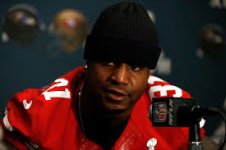In today’s high-pressure sports world, athletes aren’t just expected to win — they’re expected to perform on the field and off it. This includes the dreaded post-match press conference, where emotions run high, questions get invasive, and mental walls start to crack. But here’s the big question: should athletes be forced to face the media, even when their mental health is at stake?
The short answer? No. Absolutely not.
Athletes are humans first — not machines. They bleed, break, cry, and battle internal storms the public never sees. Yet, we often expect them to smile through pain, answer unfair questions, and pretend everything’s fine. Why? Because it's “part of the job”? That excuse is outdated. Mental health is not a luxury. It’s a right.
Take tennis star Naomi Osaka, who made headlines by withdrawing from the French Open in 2021 after refusing to attend press conferences to protect her mental well-being. Critics called her unprofessional. But millions applauded her bravery — and for good reason. She sparked a global conversation that has long been silenced in the sports world.
Let’s be honest: some of these press conferences do more harm than good. After a brutal loss, does an athlete really need to hear, “How does it feel to choke?” or “Do you think you let your team down?” That’s not journalism — it’s provocation. It's emotional ambush in the name of ratings.
Mental health breaks should be normalized, not punished. Just as athletes rest sprained ankles or torn muscles, they should be allowed to care for their minds without being fined or labeled weak. Skipping a press conference shouldn’t be seen as avoidance — it should be seen as courage.
Of course, transparency and communication with fans and media matter. But mental well-being must come first. Leagues should create flexible media policies that allow athletes to opt-out when needed — with dignity and support, not drama and penalties.
In a world where burnout is real and mental health crises are rising, it’s time we stop forcing athletes to wear masks for the cameras. Let them breathe. Let them heal.
Because when we protect their minds, we protect their game.
The short answer? No. Absolutely not.
Athletes are humans first — not machines. They bleed, break, cry, and battle internal storms the public never sees. Yet, we often expect them to smile through pain, answer unfair questions, and pretend everything’s fine. Why? Because it's “part of the job”? That excuse is outdated. Mental health is not a luxury. It’s a right.
Take tennis star Naomi Osaka, who made headlines by withdrawing from the French Open in 2021 after refusing to attend press conferences to protect her mental well-being. Critics called her unprofessional. But millions applauded her bravery — and for good reason. She sparked a global conversation that has long been silenced in the sports world.
Let’s be honest: some of these press conferences do more harm than good. After a brutal loss, does an athlete really need to hear, “How does it feel to choke?” or “Do you think you let your team down?” That’s not journalism — it’s provocation. It's emotional ambush in the name of ratings.
Mental health breaks should be normalized, not punished. Just as athletes rest sprained ankles or torn muscles, they should be allowed to care for their minds without being fined or labeled weak. Skipping a press conference shouldn’t be seen as avoidance — it should be seen as courage.
Of course, transparency and communication with fans and media matter. But mental well-being must come first. Leagues should create flexible media policies that allow athletes to opt-out when needed — with dignity and support, not drama and penalties.
In a world where burnout is real and mental health crises are rising, it’s time we stop forcing athletes to wear masks for the cameras. Let them breathe. Let them heal.
Because when we protect their minds, we protect their game.

